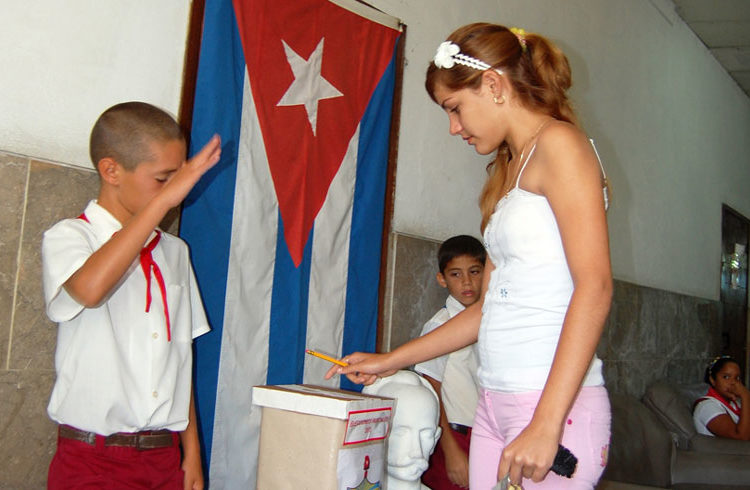The Council of State of Cuba called for October the elections to elect the delegates to the municipal assemblies, the first step prior to appointing the new Cuban president, in the face of Raúl Castro’s announcement that he would leave the post in February 2018.
A note published in the Cuban press specified that the first round of the municipal elections will take place on October 22 but did not specify the date for the provincial and national elections.
“The date in which the elections will take place to elect, for the term of five years, the delegates to the provincial assemblies and the deputies to the National Assembly of People’s Power (unicameral Parliament) will be given in due time,” the text indicates.
The note also points out that if a second round were necessary it would be carried out on October 29 in the colleges where none of the candidates obtained more than 50 percent of the valid votes.
Last May, the island began the electoral process by announcing that consultation services and the updating of domicile of the citizens who legally had the right to vote would be offered at the procedures offices of the Ministry of the Interior.
The municipal elections are the first step for a Cuban citizen to get to be a deputy to the National Assembly, the body that in turn votes to name the country’s president.
Raúl Castro has been governing Cuba since February 24, 2008, when he was ratified by Parliament, even though he had been the acting president since 2006 when his brother, the late Fidel Castro, delegated in him because of a serious illness.
Ever since he assumed the presidency, Raúl Castro affirmed he would be in the post for two five-year terms, although it is expected he will remain at the head of the Communist Party (PCC), the only legal political formation on the island, until 2021.
For lack of an official position, the forecasts point to an institutional change and the appointment of 56-year-old Vice President Miguel Díaz-Canel as the next Cuban president. Díaz-Canel is an informatics engineer, entered the ranks of the PCC when he was very young and was named as first vice president of the government in 2013.
The appointment of the vice president as the island’s topmost authority would also materialize a generational change that Castro himself has recognized is necessary, and for which last year he limited the age to be a member of the Central Committee of the PCC to 60 years and 70 for leadership posts within that formation.










